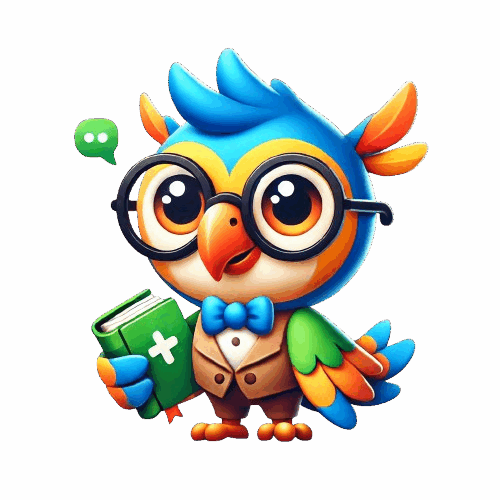How to Build Vocabulary Without Flashcard Burnout

Engage with Reading

Reading is a powerful tool for vocabulary enhancement. Dive into various genres such as novels, poetry, articles, and essays. Each style presents language differently, exposing you to new words naturally embedded in context. When you encounter a word you don’t know, pause and think about its meaning based on the surrounding text. This helps you grasp the word’s nuances rather than just its definition, making it more memorable.
Utilize Context Clues
Instead of reaching straight for a dictionary, try to infer the meanings of unfamiliar words. Context clues—words or phrases surrounding the new vocabulary—often give you hints about the meaning. By reading thoughtfully and analyzing how the word relates to the sentences around it, you’re effectively expanding your vocabulary through critical thinking, which fosters deeper retention as you consider various interpretations.
Create Contextual Sentences
Once you encounter a new word, challenge yourself to use it in your own sentences. This practice reinforces your understanding while also integrating the word into your personal vocabulary. Write sentences that relate to your life, hobbies, or interests to make the words more relevant and easier to remember. This way of applying new vocabulary in a meaningful way ensures you’re more likely to recall and use it later on.
Learn Word Families
Many English words come from the same root, which means when you learn one word, you can often learn others linked to it. For instance, if you learn the word “educate,” consider learning “education,” “educator,” and “educational.” Investigating such relationships helps you understand how vocabulary is interwoven, making it easier to grasp and recall multiple words at once without feeling overwhelmed.
Incorporate Vocabulary into Daily Life

Integrating new vocabulary into daily activities can be a fun and practical way to learn. Whether you’re journaling, texting, or even making a to-do list, consciously incorporate a few new words into your writing. This keeps your engagement levels high, turns writing into an exploration of language, and gradually builds your confidence as you use more complex vocabulary in everyday situations.
Join a Book Club or Discussion Group
One of the most enjoyable ways to enhance your vocabulary is through conversation. Joining a book club or discussion group provides a platform for you to express your thoughts on readings and hear the vocabulary used by others. This social interaction promotes language exchange, exposes you to synonyms, and encourages you to articulate your ideas using newly learned words.
Engage with Media
Podcasts, videos, and audiobooks are excellent resources for the vocabulary seeker. These platforms offer diverse dialogues, tones, and styles that can introduce you to new sayings and terms. Listening actively, especially to content that challenges your usual tastes, can expose you to new vocabulary effortlessly and entertainingly, keeping your learning dynamic and engaging.
Use Synonyms and Antonyms
Understanding a word’s synonyms and antonyms can double your vocabulary without feeling tedious. When you learn a new word, take a moment to discover what it means and look for similar words and their opposites. This not only broadens your vocabulary but also deepens your comprehension since you begin to see how different words fit into various contexts, giving a richer sense of language.
Play Word Games

Word games are not only entertaining, but they can also be educational. Tools like Scrabble, Boggle, or online puzzles encourage vocabulary expansion in a lighthearted atmosphere. These games compel you to think creatively about language, allowing you to discover new words while having fun, thus preventing the fatigue that often accompanies rote memorization.
Use Apps Wisely
In addition to traditional flashcards, there are numerous apps designed to propel your vocabulary growth. Explore options that offer gamified learning experiences, daily word notifications, and contextual exercises. These apps often provide a balance between learning new words and maintaining the excitement of discovery, so choose ones that resonate most with your learning style.
Practice Etymology
Studying the origins of words can be an engaging journey. Understanding where a word comes from and how it has evolved can make it much more interesting. Etymology unlocks a fascinating view of language that allows you to connect with words on a personal level. Plus, it promotes retention, enabling you to remember terms by linking them to historical and cultural narratives.
Create a Lexicon Journal
Consider maintaining a lexicon journal that allows you to catalog new words you want to learn. Write down definitions, synonyms, antonyms, and even sentences that incorporate those words. Personalizing your journal with doodles, thoughts, or even snippets from books or conversations can transform it into a dynamic tool rather than a chore—creating a personal connection to your vocabulary-building journey.
Contextual Word Challenges

Try challenging yourself with a weekly word quota—select five new words each week and strive to incorporate them into conversations or writing. This targeted approach is less overwhelming than trying to learn a vast number of words at once. By focusing on just a handful of terms, you give yourself ample opportunity to grasp their meanings and usages without feeling burdened.
Take Vocabulary Quizzes
Testing your knowledge through quizzes can help reinforce what you’ve learned while making vocabulary expansion feel more structured. Look for online quizzes that offer different levels of difficulty and topics. They can serve as a benchmark to gauge your knowledge, highlight areas for growth, and present new words in varied contexts, making it an enjoyable learning activity.
Attend Workshops or Classes
Consider enrolling in workshops or classes focused on vocabulary building or writing. Many local community organizations and online platforms offer such opportunities. This kind of engaged learning provides guidance from experienced instructors, who can teach you various techniques for improving your vocabulary and inspire you to keep pursuing your language journey.
Engage with Poetry and Lyrics
Delve into poetry or song lyrics as they often showcase rich language full of imagery and emotions. Analyzing the words used can provide insights into how to use language creatively while introducing you to new vocabulary in a rhythmically captivating manner. Challenge yourself to write your own poetry or lyrics, encouraging the use of new words—you’ll surprise yourself with the creativity that arises from this practice!
Explore Different Genres
Stepping outside your comfort zone and reading different genres can expose you to varied vocabulary. Each genre—be it sci-fi, fantasy, horror, or historical—has its own linguistic flair. You may discover words and phrases you would not encounter in your regular reading. This exploration keeps the process fresh and vibrant while equipping you with a diverse range of vocabulary.
Connect with Native Speakers

If you’re learning a new language, connecting with native speakers through conversation practice is invaluable. Whether via language exchange meetups or online platforms, speaking with fluent individuals not only helps refine your accent and grammar but also introduces you to colloquialisms and slang that textbooks often overlook. Such interactions help language learning feel more authentic, enriching your vocabulary in natural and relatable ways.
Set Realistic Goals
It’s crucial not to overwhelm yourself with excessive vocabulary goals. Focus on setting achievable and measurable targets, like learning two words a day or ten words per week. This strategy can alleviate the pressure that often creates burnout. Progress should be celebrated, no matter how small, which helps maintain motivation and enthusiasm throughout your learning journey.
Use Visual Aids
Visual learning can significantly enhance your vocabulary retention. Consider creating mind maps or infographics with the new words you’ve learned. Associating words with images or diagrams makes them easier to recall later. The visual representation translates the abstract concept of language into a tangible format, generating interest as you develop your personalized vocabulary resources.
Maintain a Positive Attitude
Your mindset is a powerful tool in vocabulary building. Reframe setbacks or challenges as part of the journey; emphasize consistency over perfection. Approaching vocabulary building with curiosity and playfulness—rather than dread—can significantly influence your motivation to learn. Positivity breeds enthusiasm, making it more likely you’ll embrace the learning process and stick with it over time.
Celebrate Your Progress
Finally, take the time to acknowledge and celebrate your progress. Whether you’ve mastered a handful of new words or improved your overall communication skills, recognizing your achievements can be a fantastic motivator. Consider small rewards for your milestones—a favorite snack, a novel, or simply a leisurely day out. Celebrating your accomplishments enforces a positive learning environment, making the entire vocabulary-building adventure more enjoyable.




